Sealife guideThe blacktip sharkCarcharhinus limbatus
Taxonomy
- Common name: Blacktip shark
- French name: Requin bordé
- Spanish name: Tiburón macuira,tiburón volador
- Scientific name: Carcharhinus limbatus (Müller & Henle, 1839)
- Family name: Carcharhinidae
- Order name: Carcharhiniformes
- Class name: Elasmobranchii
Description
The blacktip shark is a medium-sized shark with a streamlined body, often recognizable by the black or dark tips of its fins.
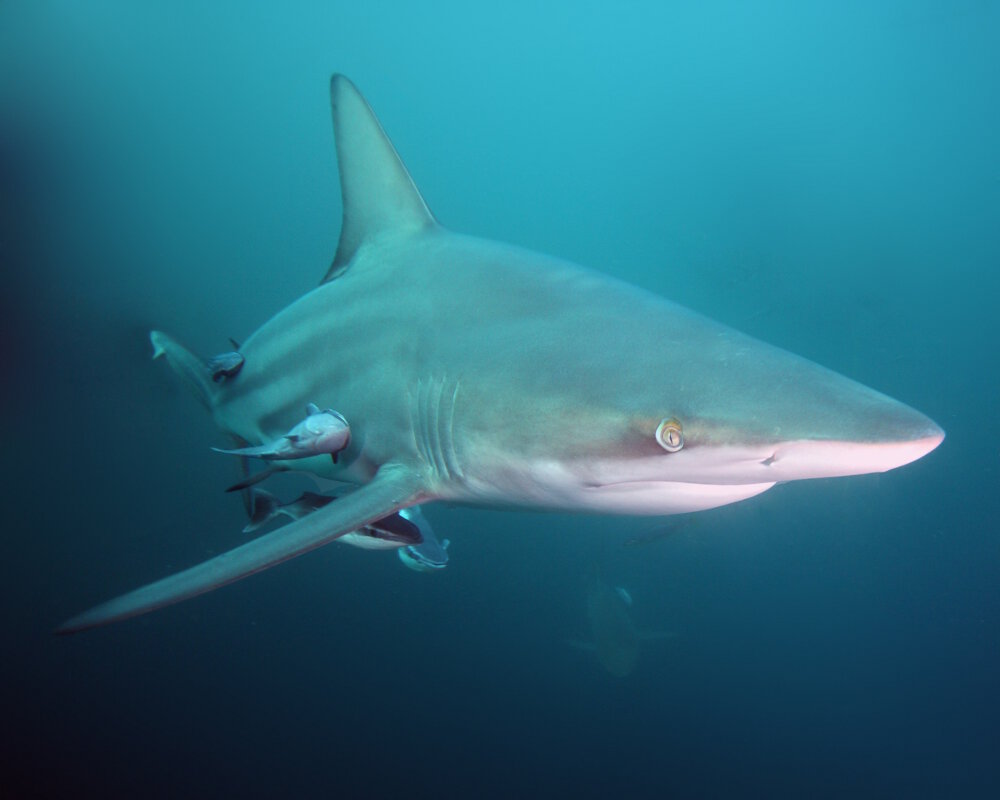
The blacktip shark (Carcharhinus limbatus) © Klomsky | Dreamstime.com
Range
The blacktip shark is widely distributed in the tropical and subtropical waters of oceans around the world.
The blacktip shark is found in the western Atlantic Ocean along the coasts of North and South America, from the state of Massachusetts in the north to the coasts of Brazil in the south. In the eastern Atlantic Ocean, it inhabits the west coast of Africa, from Senegal in the north to the Democratic Republic of the Congo in the south, including Madeira and the Canary islands. It is also present in the Gulf of Mexico, the Caribbean sea and the Mediterranean sea.
In the Indo-Pacific region, the blacktip shark is found along the coasts of the Persian Gulf, the Red sea, Madagascar and from west to east, the eastern coasts of Africa to the coasts of Australia and Southeast Asia, including the islands of Tahiti, the Marquesas and Hawaii.
the eastern Pacific Ocean, the blacktip shark is found along the western coasts of the Americas, from Baja California in Mexico to Peru, including the Galapagos islands.
Habitat
The blacktip shark prefers the shallow waters of coastal areas, reefs and estuaries but can also be observed in deeper waters.
Diet
The blacktip shark feeds on fish, cephalopods and crustaceans.
Did you know ?
The blacktip shark is listed as many other marine species within The IUCN Red List of threatened species. The blacktip shark appears in the IUCN Red List since 2021 within the category Vulnerable !
Within the same genus
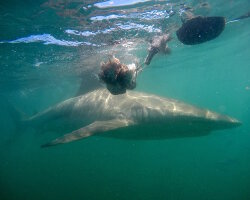
Copper shark
(Carcharhinus brachyurus)
(Carcharhinus brachyurus)
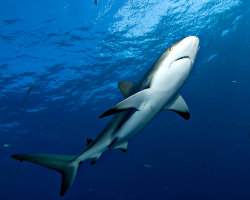
Caribbean reef shark
(Carcharhinus perezi)
(Carcharhinus perezi)
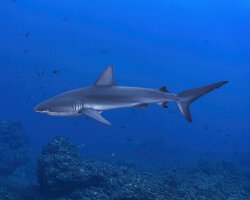
Galapagos shark
(Carcharhinus galapagensis)
(Carcharhinus galapagensis)
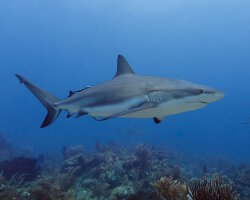
Grey reef shark
(Carcharhinus amblyrhynchos)
(Carcharhinus amblyrhynchos)
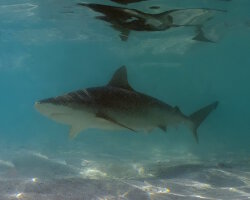
Blacknose shark
(Carcharhinus acronotus)
(Carcharhinus acronotus)
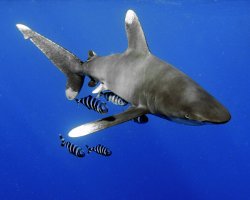
Oceanic whitetip shark
(Carcharhinus longimanus)
(Carcharhinus longimanus)
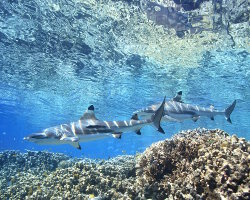
Blacktip reef shark
(Carcharhinus melanopterus)
(Carcharhinus melanopterus)
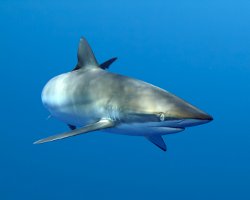
Silky Shark
(Carcharhinus falciformis)
(Carcharhinus falciformis)
Within the same family
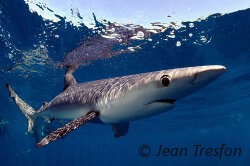
Blue shark
(Prionace glauca)
(Prionace glauca)
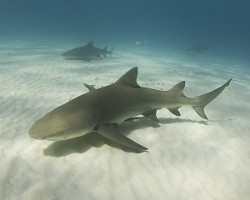
Lemon shark
(Negaprion brevirostris)
(Negaprion brevirostris)
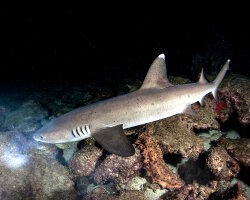
Whitetip reef shark
(Triaenodon obesus)
(Triaenodon obesus)
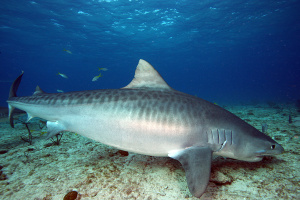
Tiger shark
(Galeocerdo cuvier)
(Galeocerdo cuvier)
Explore also
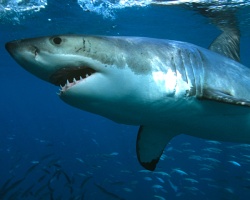
Great white shark
(Carcharodon carcharias)
(Carcharodon carcharias)
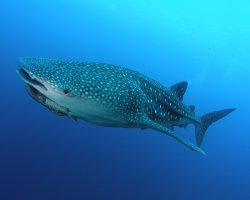
Whale shark
(Rhincodon typus)
(Rhincodon typus)
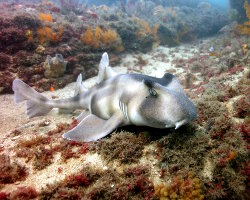
Crested hornshark
(Heterodontus galeatus)
(Heterodontus galeatus)
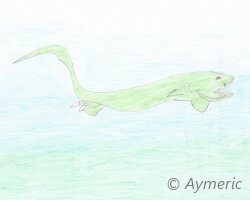
Frilled shark
(Chlamydoselachus anguineus)
(Chlamydoselachus anguineus)
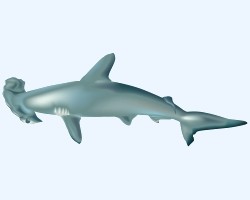
Hammerhead shark
(9 espèces)
(9 espèces)
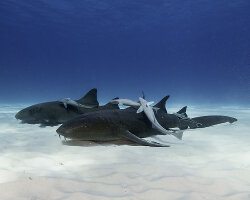
Nurse shark
(Ginglymostoma cirratum)
(Ginglymostoma cirratum)
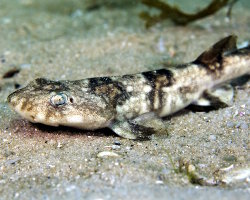
Puffadder shyshark
(Haploblepharus edwardsii)
(Haploblepharus edwardsii)
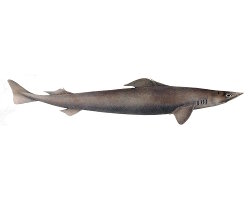
Leafscale gulper shark
(Centrophorus squamosus)
(Centrophorus squamosus)
Our latestUpdates
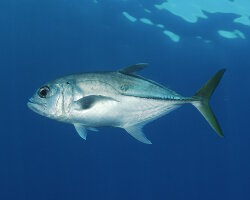
Monday, April 14th 2025
The bigeye trevally
The bigeye trevally has a silver-colored body with, as its name suggests, larger eyes compared to other trevally species. It is distinguished from other trevally species by the slightly yellowish color of its tail.

Monday, April 7th 2025
Best things to do in Miami
A flagship city of Florida, Miami is a dream destination where paradise beaches, a vibrant Latino atmosphere and a buzzing nightlife come together. With its year-round sunshine, iconic Art Deco architecture and dynamic cultural scene, Miami has everything to captivate travelers in search of escape.
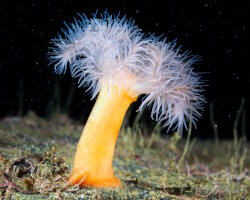
Sunday, March 23rd 2025
The plumose sea anemone
The plumose sea anemone is a key species in temperate and cold marine ecosystems. Its high adaptability, morphological diversity and reproductive strategies make it a crucial organism for understanding biological and ecological interactions in marine environments.
Photo of the Day
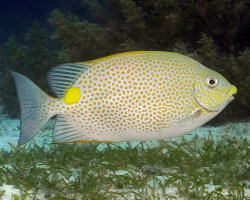
Poisson lapin tacheté d'or
(Siganus guttatus)
(Siganus guttatus)
